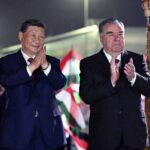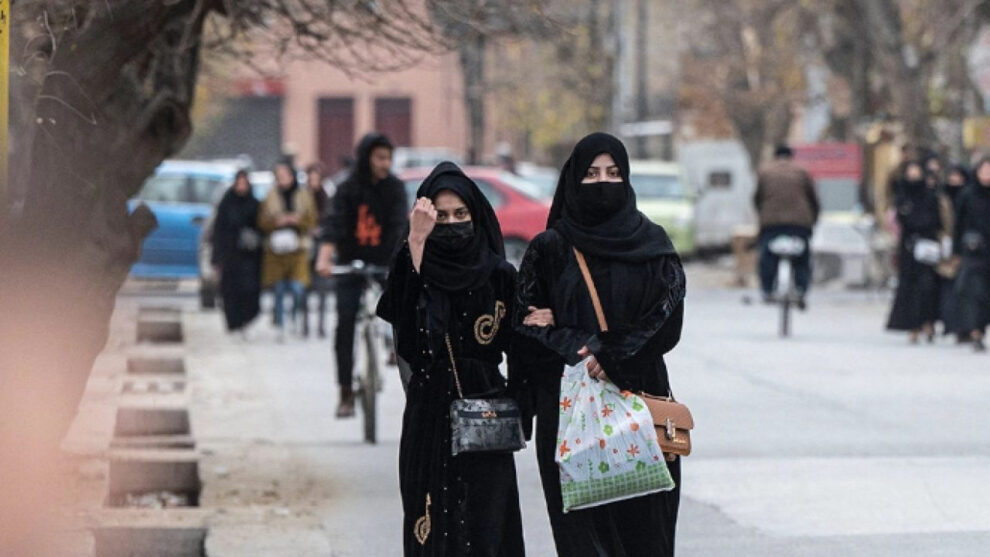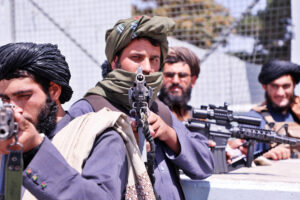Amidst controversial observations about the Taliban’s potential recognition, the world is yet to arrive at an understanding on what to make of the ultra-conservative Taliban regime and how to best deal with it. The fact that this group stuck around and, eventually, returned to power after two decades, when it was bombed out of Afghanistan, has removed all doubts about its tenacity. The Taliban is here to stay, thus, begging the question of what follows next.
While the diplomatic recognition of the Taliban remains a non-starter, as it could have an adverse impact on global security by aggravating the threats of radicalism and extremism, turning a blind eye to the perils faced by Afghan citizens will pose equally significant risks to the norms and stability of the existing world order. In these circumstances, it might help to change the discourse underpinning international engagement in Afghanistan from one that places the Taliban at the centre of the ‘Afghan problem’ to one that prioritises the economic survivability of Afghans instead. In doing so, we might be able to strengthen the ongoing humanitarian engagements in Afghanistan by providing them with a clearer mandate and more effective and sustainable mechanisms of operation. By changing tack, it may incrementally bring the Taliban to the table by blunting its perceptions of the trade-offs it may accrue by agreeing to negotiate once again.
While the diplomatic recognition of the Taliban remains a non-starter, as it could have an adverse impact on global security by aggravating the threats of radicalism and extremism, turning a blind eye to the perils faced by Afghan citizens will pose equally significant risks to the norms and stability of the existing world order.
Changing the discourse
Engagement with the Taliban continues to remain a tricky affair, especially as the major world powers, particularly those in the democratic bloc, would be wary of being seen as abetting a regime that violates basic human rights. If the international backlash against the recognition of the Taliban is any indication, a diplomatic and political acknowledgement continues to remain off the table at large. At the same time, any provision of financial aid to deliver Afghans out of their misery runs the very legitimate risk of indirectly emboldening the Taliban. In the absence of a functioning banking system, which collapsed under the weight of faulty regulatory structures and practices of the republic, the Taliban’s misgovernance and international sanctions, we cannot be sure of the ultimate beneficiaries of the incoming humanitarian flows. However, the apprehension of indirectly aiding the Taliban, while legitimate, is not only adversely impacting the lives of the Afghans in need but is also grossly misplaced.
Such unintended consequences are not necessarily new in the context of Afghanistan. Back in the 1990s, when the Taliban was in power, humanitarian aid kept afloat whatever little was available in terms of medical, educational, and nutritional support with the help of local stakeholders, not all of which may have necessarily bypassed the Taliban. The somewhat proactive policy of engagement back then has been replaced with a largely reactive policy of today, prioritising geopolitics over the genuine survival needs of the people of Afghanistan. The need of the hour then, as Antonio Donini notes, is to focus on the “survival rights” of Afghans, which are being jeopardised amidst a shift in the global narrative vis-á-vis the Taliban, from military intervention to economic warfare.
Engagement with the Taliban continues to remain a tricky affair, especially as the major world powers, particularly those in the democratic bloc, would be wary of being seen as abetting a regime that violates basic human rights.
The internationally-induced paralysis of the Afghan economy in the name of justice is more likely to further the prevailing narrative about Afghanistan’s betrayal by the world. There is, as it is, a crisis of faith in the Taliban vis-á-vis diplomacy and dialogue as a means to achieving an enduring solution to the crises in Afghanistan, which is partly a result of its internal makeup that advocates other methods for achieving governance objectives. The present misgivings about negotiations among the so-called hardliners within the Taliban continue to impact its dialogue with major international players as they refuse to cede to global demands for inclusive governance and respect for women’s rights. This, in turn, comes to reinforce the hesitation among key stakeholders to engage with the Taliban, creating a deadlock that has shown little signs of improvement in the 20 months since the Taliban retook control over Afghanistan.
Upholding the survival rights of Afghans need not require or imply a recognition of the Taliban. Far from it, by placing the Afghans at the centre of international engagements, the stakeholders can expand the scope and methods of their involvement in Afghanistan, which today are severely constrained by the myopic equation of problématique à la Afghanistan with the Taliban. A collective turn towards the survivability discourse vis-à-vis Afghanistan should, then, entail a shift in the global focus from dealing with the Taliban to engaging with Afghans. Among other things, the survival discourse-oriented measures could involve providing limited, targeted assistance to local stakeholders while paving the way for the resuscitation of economic activities beyond its current low levels of economic activity through the restoration of the Da Afghanistan Bank under international oversight. Besides making the ongoing efforts of humanitarian aid delivery more cost-effective and sustainable, a change in the prevalent discourse and practices of international engagement in Afghanistan may even reap an unintended, but positive, dividend of convincing the Taliban to see the benefit in dialogue and negotiations instead of sticking to its unyielding ways.
The present misgivings about negotiations among the so-called hardliners within the Taliban continue to impact its dialogue with major international players as they refuse to cede to global demands for inclusive governance and respect for women’s rights.
Gradual adaptation
Unlike 2002, when the world powers did have a choice to ignore the Taliban, today, the Taliban sticks out like a sore thumb. Its return to power after more than two decades of waiting has made both the Taliban and the world realise that the former is a reality that cannot be wished away. While the option of international recognition remains a non-starter for the foreseeable future, the strategies of the past, including the policy of wilful ignorance or playing the good versus bad Taliban divide, are unlikely to bear results as history indicates. Reports of direct engagement by countries like China and Pakistan with the Taliban reflect their gradual adaptation to the latter’s enduring presence. While this may help mitigate the impacts of economic and diplomatic isolation for the Taliban, these engagements are not sufficient to diminish the international chorus that demands greater accountability and responsibility from the Taliban, which also includes direct engagers like China itself. Under these circumstances, it becomes all the more critical to privilege narratives and actions that attend to the basic needs of Afghans. This may not only prevent the increasingly maturing humanitarian disaster in Afghanistan from becoming a global catastrophe, but it may render other incremental benefits like creating greater room for further negotiations.
Source : ORF
















